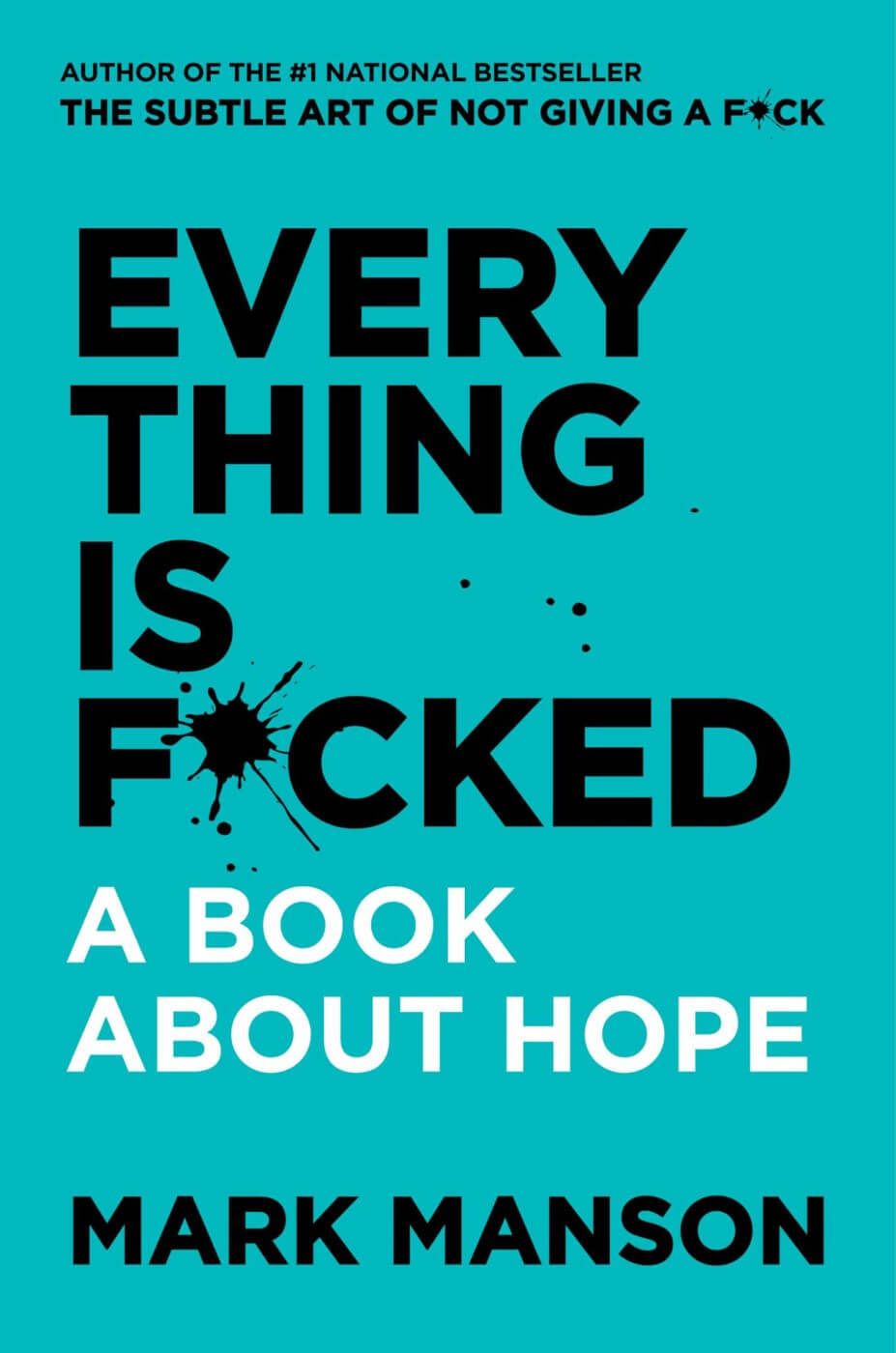Snippets about: Philosophy
Scroll left and right !
The Felicity of Virtue
Haidt contrasts ancient philosophies of happiness with modern ones. He argues that thinkers like Aristotle, the Stoics, Buddha, and Confucius rightly saw virtue and character development, not just subjective pleasure, as the keys to a fulfilling life.
The ancients recommended practicing virtues like courage, moderation, justice and wisdom until they became ingrained habits. In contrast, modern philosophies tend to emphasize either raw subjective experience (hedonism) or abstract rules (deontology, utilitarianism). As a result, modern life is often unmoored from considerations of virtue and character, and people struggle to find moral clarity and meaning.
Section: 1, Chapter: 8
Book: The Happiness Hypothesis
Author: Jonathan Haidt
Lippmann Versus Dewey: Democracy's Fundamental Tension
Walter Lippmann, observing propaganda's power during World War I, developed a penetrating critique of democracy's foundational assumptions. He argued that the environment in which we live is "altogether too big, too complex, and too fleeting for direct acquaintance," forcing each person to construct a simplified "pseudo-environment" that guides their thoughts and actions.
John Dewey, while admiring Lippmann's analysis, maintained faith that an informed public could sustain democracy, especially with new communication technologies. He envisioned a "Great Community" where "free social inquiry is indissolubly wedded to the art of full and moving communication."
A century later, Dewey's optimistic vision has been shattered while Lippmann's concerns about how limits on attention, language, and perception "substitute misleading fictions for workable ideas" seem more relevant than ever. "Dewey told us what we want to hear," Carr writes. "Lippmann told us what we need to hear."
Section: 2, Chapter: 6
Book: Superbloom
Author: Nicholas Carr
Truth Brings Attention To Some Aspects Of Reality While Ignoring Others
When seeking truth, it's important to remember that:
- No account can represent all of reality, it always focuses on some aspects while neglecting others
- There are objective facts that don't depend on beliefs, and errors are possible (e.g. saying Sarah Aaronsohn died in a plane crash in 1919 is simply wrong)
- But reality also includes subjective facts like people's views and feelings, and truth means accurately depicting those views, even if you disagree
- Each individual has a unique perspective shaped by their life experiences
So while some accounts are more truthful than others, no single "Truth" can capture all of reality. Wisdom means humbly seeking to expand your view.
Section: 1, Chapter: 1
Book: Nexus
Author: Yuval Noah Harari
Seeing Others' Humanity
"We have to see the bodies of others as subjects, because otherwise we cannot see ourselves as subjects. And if we fail to do that, we cannot be free."
Section: 1, Chapter: 1
Book: On Freedom
Author: Timothy Snyder
The Perils Of Unrestrained Pleasure-Seeking
The Marquis de Sade perfected the infliction of pain into a form of pleasure, illustrating that narcissistic individuals who are mainly concerned with protecting their self fall apart when external conditions turn threatening. Pleasure does not lead to happiness, only to the desire for more pleasure.
As Freud said, the two tyrants that fought for control over the mind were the id (servant of genetic desires) and the superego (lackey of society). In contrast, the ego stood for the genuine needs of the self. Eastern disciplines like yoga seek to free consciousness from these external pressures.
Section: 1, Chapter: 1
Book: Flow
Author: Mihály Csíkszentmihályi
The Abolition Of Man(kind)
As we've seen, the humanist world view rests on key assumptions about human nature - that we are unique individuals defined by an inner essence, endowed with free will to chart our own course.
But even as this ideology conquered the world in the 20th century, the very science it helped launch began to undermine it:
- Neuroscience is tracing thoughts and feelings to specific chemical reactions in the brain
- Genetics is revealing the blueprint behind our biological processes
- Data science is getting better at predicting human behavior from digital trails
These developments paint a very different picture of human nature:
- Decisions that feel freely chosen may actually result from biochemical algorithms
- Any notion of a "true self" is a comforting fiction - in reality we are ever-shifting networks of neurons
- Artificially intelligent systems may soon know us better than we know ourselves, rendering the entire idea of "free will" moot
Section: 2, Chapter: 7
Book: Homo Deus
Author: Yuval Noah Harari
You Are Free To Do Whatever You Like
You are free to do whatever you like. You need only face the consequences.
- Sheldon B. Kopp
Section: 1, Chapter: 3
Book: Meditations for Mortals
Author: Oliver Burkeman
Our Bodies Enable Empathy And Knowledge
According to philosopher Edith Stein, recognizing others as having a living human body (Leib) like our own enables empathy. This empathy is essential for gaining objective knowledge about the world and ourselves. Some key points:
- Seeing others as subjects with their own "zero point" creates a new web of understanding
- Empathy allows us to see ourselves as others see us, giving us knowledge we can't gain alone
- Recognizing others' Leib is key to freedom; seeing them just as objects (Körper) leaves us unfree
"We have to see the bodies of others as subjects, because otherwise we cannot see ourselves as subjects. And if we fail to do that, we cannot be free."
Section: 1, Chapter: 1
Book: On Freedom
Author: Timothy Snyder
Our Collective Maternal Origins
'What kind of world could we imagine and create if, instead of pretending we were thrown into existence, as though by magic, we truly considered our vulnerable, intimate, tactile, entangled, animal origins?'
Section: 5, Chapter: 13
Book: Matrescence
Author: Lucy Jones
Hyperreality: When The Simulation Becomes More Real Than The Real
Jean Baudrillard foresaw how media would transform society into what he called "hyperreality"—a condition where representations of things take precedence over the things themselves. Once everything is reduced to information and communication, the "principle of simulation governs us now, rather than the outdated reality principle."
This transformation occurs through several processes:
- All experiences become mediated through screens and networks
- The virtual world provides more intense stimulation than the physical world
- Our seeking instinct, which evolved for survival, finds unlimited gratification online
- Reality begins to feel dull, slow, and lifeless by comparison
As Baudrillard argued, the hyperreal comes to feel more real than the real: "It is the excess of reality that puts an end to reality." The Walker Canyon superbloom demonstrates this perfectly—for many visitors, #superbloom existed more vividly than the actual flowers they trampled to photograph.
Section: 3, Chapter: 9
Book: Superbloom
Author: Nicholas Carr
Positive Psychology Is Reviving The Ancient Emphasis On Virtue
Haidt discusses how the positive psychology movement, pioneered by Martin Seligman, is reviving some ancient wisdom about happiness and virtue.
Positive psychology focuses on identifying and cultivating individual and societal strengths and virtues, not just treating disorder and dysfunction.
Seligman and Peterson developed a framework of 6 core virtues and 24 specific character strengths, drawing on both ancient philosophies and modern psychological research. The framework provides a way for people to identify their signature strengths and organize their lives around them. Exercising one's strengths is inherently rewarding and contributes to a sense of meaning and engagement.
Section: 1, Chapter: 8
Book: The Happiness Hypothesis
Author: Jonathan Haidt
The Buddha's Teachings On Not-Self
The Buddha's key teachings on not-self (anatta) are found in the Anatta-lakkhana Sutta. In it, he examines the five aggregates that constitute a person:
- Form (the body)
- Feeling
- Perception
- Mental formations
- Consciousness
For each aggregate, he argues that if it were truly part of the self, one should be able to control it. But since we can't control these aggregates (e.g. the body ages and gets sick despite our wishes), they must be not-self. He instructs monks to contemplate each aggregate and realize "This is not mine, I am not this, this is not my self."
Section: 1, Chapter: 5
Book: Why Buddhism Is True
Author: Robert Wright
The Humanist Revolution
One of the most important developments in human history has been the gradual rise of humanism. This is the belief that humans are the ultimate source of meaning and authority in the universe. Humanism took off during the Renaissance and the Enlightenment in Europe. Thinkers like Pico della Mirandola and Immanuel Kant argued for the dignity and autonomy of the individual.
Over time, humanism has manifested in different forms:
- Liberal humanism emphasizes individual freedom and sees humans as unique individuals
- Socialist humanism emphasizes equality and sees humans as shaped by their socio-economic conditions
- Evolutionary humanism emphasizes the power of natural selection and sees humans as just another species
Despite their differences, all forms of humanism share a common belief in the centrality of the human experience. They all see human feelings, desires, and choices as the ultimate arbiter of meaning and value. It underlies our political and economic systems, our approach to ethics and education, and even our understanding of history.
Section: 1, Chapter: 3
Book: Homo Deus
Author: Yuval Noah Harari
Sweet And Sour: The Italian Approach To Excellence
Italy offers a powerful model for intentional imperfection through what philosophers Gloria Origgi and Diego Gambetta call the "sweet and sour" approach to life:
The Sweet: Italy is renowned for the dolce vita ("the sweet life"), embracing life's simplest joys from leisurely strolls to intimate conversations, savoring every moment.
The Sour: Italy's postal service is notoriously unreliable, bureaucracy can be maddening, and some systems seem chaotic to outsiders.
The Excellence: Despite apparent contradictions, Italy achieves world-class excellence in targeted domains—automobiles, fashion, healthcare, and wine production all reflect technical mastery and artistic flair.
This approach reflects a philosophy articulated by 16th-century Italian philosopher Lucilio Vanini, who asserted that "the greatest perfection lies in imperfection." For Vanini, true perfection isn't a static, finished state but allows for evolution and interpretation—like a painting that leaves room for the viewer's imagination.
By embracing this duality—accepting that both sweet and sour experiences are necessary for a rich, flavorful life—we develop greater psychological resilience and mental well-being.
Section: 2, Chapter: 6
Book: Tiny Experiments
Author: Anne-Laure Le Cunff
Focusing on What You Can Control
Wasting energy and attention on things outside your control is unproductive and disempowering. Instead, focus exclusively on the things within your sphere of influence:
- Your emotions
- Your judgements
- Your creativity
- Your attitude
- Your perspective
- Your desires
- Your decisions
By directing your effort to what you can actually impact, you increase your power and ability to navigate difficulties. Everything else is just a distraction.
Section: 1, Chapter: 6
Book: The Obstacle Is the Way
Author: Ryan Holiday
Viewing Freedom Negatively Endangers Public Health
Conceiving of freedom as just the absence of government intervention has dangerous consequences for public health.
To become healthier and freer, Americans should:
- Embrace a positive definition of freedom that includes access to healthcare for all
- Understand how lack of universal healthcare coverage constrains freedom by making people fearful and limiting their choices
- Recognize that a right to healthcare has a basis in early American thought, as Jefferson considered health second only to ethics
- Advocate for policies expanding access to preventive care, maternal health services, vaccines and public health
Section: 1, Chapter: 1
Book: On Freedom
Author: Timothy Snyder
The Disciplined Pursuit Of Less
The way of the Essentialist is about living by design, not by default. It's a disciplined, systematic approach for determining where our highest point of contribution lies, then making execution of those things almost effortless. The Essentialist explores more options than the Nonessentialist to make better decisions, then eliminates the nonessentials to make execution easy. Essentialism is not about getting more things done, but getting the right things done.
To become an Essentialist requires a heightened awareness of our ability to choose:
- We have the power to choose how to spend our energy and time
- We can either allow nonessentials to overwhelm us, or deliberately choose where to focus our efforts
- If we don't prioritize our lives, someone else will
Section: 1, Chapter: 1
Book: Essentialism
Author: Greg McKeown
Our Nemesis Predictifies Us
The technologies we increasingly rely on - especially social media algorithms - are making us more predictable and less free. To maintain freedom, we must actively resist this "predictification":
- Recognize that technologies are not neutral, but have purposes that may not align with our values
- Audit how much time we spend on devices and what data we are providing
- Actively choose when to engage and disengage to maintain sovereignty over our attention
- Cultivate "significant roughness" by seeking out art, music, literature and experiences that challenge us
- Gather physically with others to build solidarity and escape the isolation the machine relies on
Section: 1, Chapter: 2
Book: On Freedom
Author: Timothy Snyder
The Farmer's Maybe: A Lesson In Judgment Suspension
An ancient Chinese parable tells of a farmer whose horse ran away. When neighbors offered condolences for his "terrible fortune," he simply replied, "Maybe." The next day, his horse returned with seven wild horses. The neighbors exclaimed, "What great luck!" Again, the farmer responded, "Maybe." When the farmer's son broke his leg trying to tame one of the wild horses, the neighbors called it "bad luck." The farmer said, "Maybe." Then military officers came to draft young men for war but left the son behind due to his injury. The neighbors shouted, "Isn't that fantastic!" The farmer answered, "Maybe."
This parable illustrates the wisdom of suspending judgment about life's disruptions. Former software developer Michael Singer embodied this approach after experiencing his own series of unexpected events. When investigated by the FBI and forced to resign as CEO of the company he founded (though ultimately cleared of wrongdoing), Singer maintained his equanimity, accepting outcomes without bitterness.
The story demonstrates how refusing to immediately label events as good or bad creates space for possibility. What initially seems disastrous may contain hidden benefits, while apparent windfalls might carry unforeseen complications. This attitude doesn't mean abandoning hope, but rather cultivating nimble resilience in the face of life's inevitable uncertainties.
Section: 3, Chapter: 9
Book: Tiny Experiments
Author: Anne-Laure Le Cunff
The Elusive Turing Test
Since Alan Turing first proposed his famous "imitation game" in 1950, the goal of creating an AI that could fool humans in open-ended conversation has been a holy grail of artificial intelligence.
The arrival of Large Language Models (LLMs) in the 2020s brought a more definitive breakthrough, with systems like GPT-4 engaging in remarkably fluid and contextual dialogue across a wide range of subjects. Through the lens of the Turing Test, LLMs aren't just imitating humans but revealing how much of human communication is pattern matching and remixing.
The new frontier, the author argues, is grappling with the philosophical and societal implications of machines that can pass as thinking beings, even if they aren't truly sentient.
Section: 2, Chapter: 4
Book: Co-Intelligence
Author: Ethan Mollick
The Quest For Happiness Is Not New
Aristotle concluded over 2,300 years ago that more than anything else, men and women seek happiness. While much has changed since then, this central yearning has not. What gives life meaning is not money or prestige, but how we feel and experience our lives from within. Despite having more material comforts and luxuries than ever before, people today are often no happier than in the past. The key to happiness lies not in external circumstances, but in how we manage our inner life and consciousness.
Section: 1, Chapter: 1
Book: Flow
Author: Mihály Csíkszentmihályi
The Mountain Is A Metaphor
Just as a mountain is formed when two sections of ground are forced against one another, your mountain will arise out of coexisting but conflicting needs. Your mountain requires you to reconcile two parts of you: the conscious and the unconscious, the part of you that is aware of what you want and the part of you that is not aware of why you are still holding yourself back.
Historically, mountains have been used as metaphors for spiritual awakenings, journeys of personal growth, and insurmountable challenges. The objective of being human is to grow, and our problems often serve as catalysts for this growth.
Section: 1, Chapter: 1
Book: The Mountain Is You
Author: Brianna Wiest
Punishment And Rehabilitation In A World Without Free Will
If our choices are shaped by factors beyond our control, can we justify punishing wrongdoers? A deterministic view requires rethinking, but need not abolish, criminal justice:
- Retributive rationales for punishment are undermined, as offenders are seen as unfortunate, not inherently evil.
- Consequentialist rationales - deterrence, incapacitation, rehabilitation - still hold, as they don't require metaphysical free will.
- Punishment of some sort remains necessary to shape behavior and protect society, even if offenders aren't ultimately "blameworthy."
- The priority shifts from making offenders "pay" to changing the conditions that drive crime in the first place.
Just as we separate dangerous but "innocent" people like violent Alzheimer's patients without moral condemnation, a deterministic criminal justice system would aim at preventing harm and maximizing flourishing, not meting out just deserts.
Section: 1, Chapter: 12
Book: Fluke
Author: Brian Klaas
Embracing Determinism As Awe-Inspiring, Not Demoralizing
The possibility that our lives and choices are the product of prior causes, not autonomous free will, is often seen as depressing. But this deterministic picture can be reframed in an inspiring way:
- Our lives are part of an unbroken causal chain extending back to the Big Bang. Every decision by every human has shaped what is possible now.
- Small choices by our distant ancestors, lovingly making their way through life, were necessary links in the chain that led to our existence.
- When we make positive choices, we play a role in enabling goodness and beauty to reverberate down through the generations.
From this angle, determinism is a reminder of our profound interdependence and the way our lives are inextricably bound up with the whole of history.
Section: 1, Chapter: 12
Book: Fluke
Author: Brian Klaas
The Triplet of Opacity
The triplet of opacity describes the three facets that prevent us from grasping the true nature of the world:
1. The illusion of understanding - thinking the world is more understandable than it actually is
2. The retrospective distortion - assessing matters only after the fact
3. The overvaluation of factual information and the handicap of authoritative experts
Section: 1, Chapter: 1
Book: The Black Swan
Author: Nassim Nicholas Taleb
Worldliness As Resistance
"To argue for a more material and less virtual existence is not to make a case for materialism alone. As the ambitions of Andreessen, Zuckerberg, and the other evangelists of virtual reality make clear, it's virtuality that reduces all concerns to the materialistic. Hyperreality is all surface and no depth. Beyond the simulation lies nothing at all, as Baudrillard saw. Any attempt to transcend reality, intellectually, artistically, or spiritually, has to begin from within reality, bounded by constraints of time and space. You can only get beyond the material by going through the material, by suffering and surmounting its frictions."
Section: 3, Chapter: 10
Book: Superbloom
Author: Nicholas Carr
Intersubjective Realities Shape The World
Harari outlines three levels of reality:
- Objective reality - things that exist independently of what people think about them, like mountains or asteroids.
- Subjective reality - things that exist only in a person's own mind, like pain or love.
- Intersubjective reality - things that exist within communication networks between many people, like nations, laws, gods and money. These are fictions created by exchanging information.
As human power grows, intersubjective realities become ever more consequential in shaping the "real" world. For example, the intersubjective reality of a state's borders can determine the fate of millions.
Section: 1, Chapter: 2
Book: Nexus
Author: Yuval Noah Harari
Tanha - The Thirst That Binds
A core teaching of early Buddhism is that the root of suffering is tanha, usually translated as "craving" or "thirst." This is the mind's basic restlessness and discontent, its compulsive grasping after pleasant experiences. The Buddha's formula of dependent origination (paticca-samuppada) traces how tanha arises:
- Our six senses (including mind) contact objects and experiences
- This contact gives rise to feeling tone - pleasant, unpleasant or neutral
- Based on feeling tone, tanha manifests as craving and aversion
- Craving and aversion condition clinging, grasping and becoming
- Grasping and becoming lead to suffering and dissatisfaction
The way to freedom, then, is to see clearly how tanha operates and learn to let go of it. When pleasant or unpleasant feelings arise, we can observe them without getting caught in reactivity. Over time, this weakens tanha's hold on the mind, leading towards nirvana - the "unbound," unconditioned state.
Section: 1, Chapter: 14
Book: Why Buddhism Is True
Author: Robert Wright
Immanuel Kant's Formula For Ethical Behavior
The 18th century German philosopher Immanuel Kant attempted to establish a universal principle for determining moral behavior. He called it the "Categorical Imperative" or the "Formula of Humanity." It states:
"Act that you use humanity, whether in your own person or in the person of any other, always at the same time as an end, never merely as a means."
- Always treat people as ends in themselves, never simply as means to an end
- Act as though the principles guiding your actions should become universal laws for everyone
Kant argued this principle is the foundation for all morality and ethics. It comes from the idea that conscious reasoning beings have a special dignity and worth. We must respect that dignity in ourselves and others.
Manson believes Kant was on to something profound. Living by this simple maxim would solve many ethical dilemmas. It also provides a way out of the childish and adolescent traps of chasing pleasure and trying to bargain with the world. The Formula of Humanity represents a more adult stance toward life, one of self-respect and respect for others.
Section: 2, Chapter: 6
Book: Everything is F*cked
Author: Mark Manson
Living By Principles Instead Of Inspiration
If you feel lost or fear everything you've built could collapse, you don't need more inspiration or positive thinking. You need principles.
Principles are fundamental truths that build the foundation of your life - not opinions or beliefs, but matters of cause and effect. They shift you from short-term survival to long-term thriving. Examples include:
- For money: Live beneath your means, keep overhead costs low, prioritize debt repayment
- For relationships: Value honest connections, set clear boundaries
- For work: Develop consistent practices, focus on what you can control
Unlike inspiration which is temporarily gratifying but often ineffective, principles are the unglamorous laws that govern outcomes. When you adopt principles aligned with your values and stick to them consistently, small daily actions compound into significant life changes over time.
Section: 1, Chapter: 6
Book: The Mountain Is You
Author: Brianna Wiest
The Tragic Echoes of Postimperial Immobility
"Postimperial immobility summoned a tragic echo of the age of imperial mobility. Where once prison inmates were forced to work, now they are forced to do nothing. Where once disease was a tool of empire, now drugs have become a means of self-oppression. Where once guns allowed men to tame a frontier, now they are instruments of self-annihilation."
Section: 1, Chapter: 3
Book: On Freedom
Author: Timothy Snyder
The Paradox Of Self-Control
We tend to think of "self-control" as the rational self or intellect overpowering unruly emotions and impulses. But the situation is more complex:
- There may be no single "rational self," just mental modules that are more future-oriented competing with those driven by short-term rewards.
- Reason alone is rarely sufficient to control behavior directly - to influence action, reason must impact feeling. As David Hume argued, reason is "the slave of the passions."
- The real contest is between different feeling states - e.g. the allure of eating a cookie now vs. the pride in sticking to a diet or anxiety about weight gain.
The module most able to capture our conscious narrative in the moment, often by appealing to emotion, wins out. So the key to self-control is less about reason defeating feeling, and more about training and empowering modules that favor long-term well-being over short-term gratification.
Section: 1, Chapter: 9
Book: Why Buddhism Is True
Author: Robert Wright
Negative Freedom Is Incoherent Because It Rejects Solidarity
The idea of negative freedom - merely getting government out of the way - is incoherent because it rejects the solidarity that makes freedom possible. Consider:
- Many "negative freedom" advocates want to defund public education, making it harder for the next generation to develop capabilities for freedom
- Adherents often reject any redistribution, allowing oligarchic concentrations of wealth to limit most people's economic freedom
- Defenders frequently deny the existence of systemic racism, dismissing the perspectives and experiences of minority groups
In each case, negative freedom assumes that one person or group's freedom is independent of everyone else's. But in reality, we can only be free together in solidarity. Freedom is a collective achievement of humanity that requires ongoing collective effort to sustain.
Section: 1, Chapter: 5
Book: On Freedom
Author: Timothy Snyder
How Utilitarianism Justifies Near-Universal Poverty
The Repugnant Conclusion, conceived by philosopher Derek Parfit, illustrates the perverse implications of unbridled utilitarianism. It compares two hypothetical worlds:
- A: The current world, but with disease, poverty, and injustice eliminated. 8 billion people enjoy a very high standard of living.
- B: A world with vastly more people (trillions or quadrillions) living lives barely above subsistence level, perhaps only briefly experiencing simple pleasures.
Utilitarianism's calculus judges World B as better because the sheer number of people outweighs their quality of life. After all, a huge number multiplied by even a tiny positive value ("utility") yields a bigger number. The Repugnant Conclusion demonstrates how utilitarianism fails to align with common moral intuitions in extreme scenarios.
Section: 2, Chapter: 7
Book: On The Edge
Author: Nate Silver
Freedom's Ambition Is Never Complete - But Always Worth Pursuing
The author visits a recently liberated village in Ukraine, where an old woman named Mariia shows him the hardships she has endured under Russian occupation. He reflects:
"The Ukrainian word de-occupation, which she and I are using in conversation, is more precise than the conventional liberation. It invites us to consider what, beyond the removal of oppression, we might need for liberty. It takes work, after all, to get one older woman into a position where she can greet guests and perform the normal interactions of a dignified person. I have trouble imagining Mariia being truly free without a proper house with a chair and without a clear path to the road for her walker.
Freedom is not just an absence of evil but a presence of good."
Section: 1, Chapter: 5
Book: On Freedom
Author: Timothy Snyder
Ivan's Lifesaving Soccer Ball
In the summer of 2022, a tourist named Ivan was swept out to sea off the coast of Greece. Just before slipping under the waves, he spotted a soccer ball floating in the distance and swam to it, clinging to it until he was rescued 18 hours later. It turned out the ball had drifted 80 miles after two boys accidentally kicked it into the sea 10 days earlier. Without their inadvertent action, Ivan would have perished. This story powerfully illustrates how even the seemingly insignificant choices of people we will never meet can become inextricably linked with our own fates in an intertwined world.
Section: 1, Chapter: 2
Book: Fluke
Author: Brian Klaas
Freedom Requires Creating The Conditions For Others' Freedom
The final form of freedom, solidarity, means recognizing our own freedom as inextricable from the freedom of all. As the author puts it:
"To declare oneself free is to promise to act such that others can be free. We must imagine a society of free people and try to build it. Morally, logically, and politically, there is no freedom without solidarity."
Solidarity means moving beyond selfishness and tribalism to uphold freedom as a universal principle. It is the key to making individual liberty a collective reality.
Section: 1, Chapter: 4
Book: On Freedom
Author: Timothy Snyder
Havel's Greengrocer Shows The Power Of Living In Truth
In his famous 1978 essay "The Power of the Powerless," Czech dissident Václav Havel demonstrates how ordinary people can resist a system of oppression through small acts of truth. His example:
A greengrocer hangs a sign in his shop window proclaiming "Workers of the world, unite!" He doesn't believe the slogan, but hangs it to avoid trouble. One day, he stops hanging the sign - a tiny act of defiance. By rejecting the ritual and "living in truth," he exposes and threatens the whole oppressive system.
For Havel, the powerless greengrocer shows that we always have a choice, however small, to act freely. And in those choices lies the power to create change.
Section: 1, Chapter: 2
Book: On Freedom
Author: Timothy Snyder
The Joys Of Thinking
Just as the body can be a source of flow experiences, so too the mind, arguably to an even greater degree. We often underestimate how enjoyable and rewarding thinking can be, if done for its own sake.
Great thinkers throughout history - Democritus, Aristotle, Archimedes, Newton, Einstein - have described their investigations as autotelic activities, pursued primarily for the sake of the experience itself. In fields as diverse as mathematics, poetry and philosophy, the act of grappling with conceptual problems is often described in ecstatic, almost mystical terms.
The same holds true for chess, logic games, artistic composition and scientific experimentation. Any mental activity that involves rules, goals and a perceived challenge can become a source of flow. What's required is learning the associated skills and then finding novel ways to use them.
Section: 1, Chapter: 6
Book: Flow
Author: Mihály Csíkszentmihályi
Free Will In An Age Of Algorithms
One of the foundations of modern humanism is the idea of free will. But as science advances, that notion is increasingly under threat:
- Neuroscience suggests that our thoughts and decisions are the product of neural activity governed by the laws of physics, not some ethereal "will"
- Behavioral economics and psychology have shown that our choices are often irrational and shaped by unconscious biases and environmental cues
- Big data analytics can predict our actions based on past patterns, turning our behavior into a probability equation
- Advances in genetics highlight the role of inborn traits and predispositions in shaping who we become
In light of these discoveries, the line between free choice and determinism becomes blurred. And as artificial intelligence grows more sophisticated, even the appearance of choice may disappear.
Section: 3, Chapter: 8
Book: Homo Deus
Author: Yuval Noah Harari
Something Beyond Our Selves
Manson references the book "The Denial of Death" by Ernest Becker, which argues that all human behavior is motivated by a deep-seated fear of mortality. According to Becker, because we're the only creatures aware of our own inevitable demise, we seek to escape that terror by constructing meaning and value systems that will outlast us as individuals.
Becker calls these "immortality projects" - like building monuments, amassing fortunes, or creating artistic masterpieces. The urge to leave a lasting mark stems from our refusal to accept the impermanence and unimportance of the self. But ironically, it's only when we're able to face the reality of death and relinquish our self-importance that we can connect to something greater than ourselves.
"The fear of death follows from the fear of life. A man who lives fully is prepared to die at any time." - Mark Twain
Section: 1, Chapter: 9
Book: The Subtle Art of Not Giving a F*ck
Author: Mark Manson
You Can Only Cross Bridges When You Come To Them
We're hopelessly trapped in the present, confined to this temporal locality, unable even to peer over the fence into the future. This means we suffer from what psychologist Robert Saltzman calls "total vulnerability to events" - anything could happen at any moment.
Worry is our mind's attempt to picture every bridge we might have to cross, then figure out how to cross them. But this goal is doubly impossible. We can't think of every challenge we might face, and even if we could, the solace we crave would only come from knowing we'd made it safely over—which we can't know until we've actually crossed them.
The hidden gift in this reality? Your responsibility can only ever be to the next moment—just do "the next and most necessary thing" as best you can.
Section: 1, Chapter: 7
Book: Meditations for Mortals
Author: Oliver Burkeman
Unpredictability Arises From Sovereign People Pursuing Values
Unpredictability, the second form of freedom, emerges when sovereign individuals make choices based on their own unique combination of values. Key points:
- Values exist in a "fifth dimension" with its own logic that can seep into our world
- As we choose values over time, we gain the capacity to combine them in new ways
- Every sovereign person constantly faces choices between values in their own unique circumstances
- When sovereign people interact, they generate societywide unpredictability
This human unpredictability keeps us free from those who would oppress us by making us predictable. "Free people are predictable to themselves but unpredictable to authorities and machines."
Section: 1, Chapter: 2
Book: On Freedom
Author: Timothy Snyder
The Existential Crisis of Matrescence
Becoming a mother triggers a profound existential crisis that goes beyond physical and social changes. The weight of responsibility for another life's survival, combined with a sustained confrontation with mortality, creates a fundamental shift in one's relationship to existence.
As existential psychotherapist Claire Arnold-Baker explains, 'Everything has to be chosen again.' Women must make high-stakes decisions about how to mother, how to incorporate this new identity, and what matters most—all while navigating the 'void of the future' with no clear path forward.
This crisis is intensified by society's failure to acknowledge its significance. Without rituals, community support, or cultural understanding of this transition, women are 'left to overcome this traumatic life crisis, and work things out for themselves, with little or no support.'
Section: 5, Chapter: 11
Book: Matrescence
Author: Lucy Jones
Dr. Johnson's Rock And The World's Persistence
When Samuel Johnson famously refuted the philosophical doctrine of immaterialism by kicking a rock, he was making more than an intellectual point. He was demonstrating the world's indifference to our theories about it—the stubborn persistence of reality despite our mental constructs.
This physical engagement with the world is exactly what separates human intelligence from artificial intelligence. Robotics expert Rodney Brooks argues that truly perceptive AI would need a physical presence: "The world is its own best model. It is always exactly up to date. It always contains every detail there is to be known. The trick is to sense it appropriately and often enough."
That's also the trick for us humans: to escape imprisonment in the hyperreal by rebuilding our connection to material existence. Live in a simulation long enough, and you begin to think and speak like a chatbot, your thoughts becoming the outputs of a prediction algorithm.
Section: 3, Chapter: 10
Book: Superbloom
Author: Nicholas Carr
People Have A Natural Sense Of The Sacred
Haidt argues that the human mind is predisposed to perceive sacredness and divinity, regardless of religious belief. He discusses how notions of sanctity, purity, elevation and degradation shape moral thinking across cultures.
Things seen as holy or sacred are treated as inviolable and protected from the corrupting influence of the profane or carnal. This "ethics of divinity" was central to most ancient cultures but has waned in the secular modern West. Yet even modern people experience quasi-religious elevation in response to extraordinary virtue and beauty. Haidt argues that the emotion of moral disgust evolved to help enforce the sacred/profane boundary.
Section: 1, Chapter: 9
Book: The Happiness Hypothesis
Author: Jonathan Haidt
The Value of Care Work
'Care work is hardcore. It is life and death work. It is fevers and risk and birth and illness and screaming and love and transference. It is transformation and hope. It is quick thinking and deep patience. It is resentment and anger. It is sacrifice and gift... It took me to the edge of what it means to be human. It tested my empathy to the limit, it challenged me intellectually, it required me to answer and ask questions constantly, to consider metaphysics and the origins of matter.'
Section: 5, Chapter: 12
Book: Matrescence
Author: Lucy Jones
The Sunny Side Of Death
In the final chapter, Manson makes the case that contemplating mortality, as morbid as it seems, is crucial for living well. Death is the only certainty, the one experience every human will share, and our awareness of it can be a powerful driving force when harnessed correctly.
Manson relates his own brush with death in a poignant story about getting dangerously close to the edge of a cliff in South Africa. In that heart-stopping moment, all his petty concerns and daily anxieties fell away, replaced by a sudden vivid appreciation for his finite time on earth. He realized that death isn't just an abstract fact, but a visceral reality that puts everything in perspective. The looming presence of death has the power to snap us out of complacency and self-absorption.
Section: 1, Chapter: 9
Book: The Subtle Art of Not Giving a F*ck
Author: Mark Manson
Chronos Versus Kairos: Two Ways To Experience Time
The ancient Greeks had two distinct words for time that reveal profoundly different ways of experiencing it:
1. Chronos : The quantitative, mechanical time of clocks and calendars. It's depicted as identical units marching inexorably forward, creating a sense of scarcity and urgency. The image "Your Life in Weeks" exemplifies this view—showing life as identical boxes that will eventually run out.
2. Kairos : The qualitative, fluid experience of time. It recognizes that some moments carry special weight or potential. Le Cunff likens Kairos moments to what she calls "magic windows"—periods of flow that occur when we're immersed in captivating activities, connecting with loved ones, or engaged in self-reflection.
While Chronos rules most of our modern existence, our actual experience is more like Kairos. Research confirms that our perception of time is elastic—emotional experiences, physiology, cognitive engagement, and even cultural factors all influence how time feels to us. The week you submitted an important proposal likely felt much longer than a typical week, while time seems to speed up as we age.
Section: 2, Chapter: 4
Book: Tiny Experiments
Author: Anne-Laure Le Cunff
"Do Not Obey in Advance"
"Anticipatory obedience is a political tragedy. Perhaps rulers did not initially know that citizens were willing to compromise this value or that principle. Perhaps a new regime did not at first have the direct means of influencing citizens one way or another. After the German elections of 1932, which permitted Adolf Hitler to form a government, or the Czechoslovak elections of 1946, where communists were victorious, the next crucial step was anticipatory obedience. Because enough people in both cases voluntarily extended their services to the new leaders, Nazis and communists alike realized that they could move quickly toward a full regime change. The first heedless acts of conformity could not then be reversed."
Section: 1, Chapter: 1
Book: On Tyranny
Author: Timothy Snyder
The Delusion Of Individualism In An Intertwined World
We tend to view our lives through an individualist prism, imagining that we are in control of our destinies and that our major decisions define our path. However, the reality is that we live in a deeply intertwined world where the decisions and actions of others, even those we will never meet, can profoundly shape our lives in ways we often fail to perceive.
The delusion of individualism blinds us to the complex web of causality that connects us all across time and space. Recognizing the relational, intertwined nature of existence is crucial for understanding how change truly happens in our lives and societies.
Section: 1, Chapter: 2
Book: Fluke
Author: Brian Klaas
Eastern Paths To Mastering The Mind
Yoga and the martial arts offer two time-tested systems for achieving mind-body integration and flow.
Hatha Yoga aims to join individual consciousness with universal consciousness through physical postures, ethical behavior, breath control and mental concentration. Over years of disciplined practice, yogis are able to master their body, senses, thoughts and feelings.
The martial arts like Aikido and Karate also use physical training as a vehicle for mental development. Through cultivating a warrior mindset, students learn to overcome fear, live in the present, and maintain grace under pressure. The goal is to act with effortless spontaneity in any situation.
While their specific techniques differ, both traditions point to a common truth - that we can achieve an inner state of harmony by regulating attention through the body.
Section: 1, Chapter: 5
Book: Flow
Author: Mihály Csíkszentmihályi
Books about Philosophy
History
Technology
Artificial Intelligence
Nexus Book Summary
Yuval Noah Harari
In "Nexus: A Brief History of Information Networks from the Stone Age to AI," Yuval Noah Harari explores how the flow and organization of information has shaped human history, arguing that the rise of artificial intelligence could lead to either unprecedented human cooperation or the dominance of digital dictatorships.
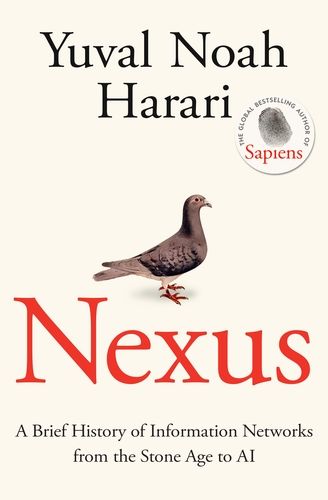
Medicine
Philosophy
Life
Being Mortal Book Summary
Atul Gawande
In "Being Mortal," surgeon Atul Gawande argues that medicine must shift its focus from simply extending life to enabling well-being, especially for the elderly and terminally ill, by helping patients and families courageously face mortality and define what matters most in their final days.
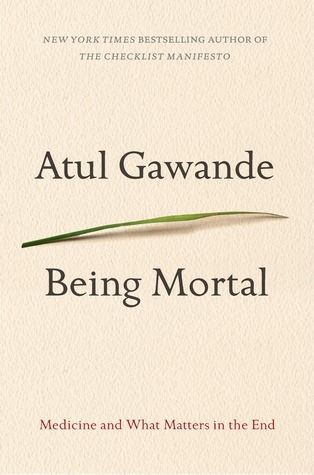
History
Politics
Philosophy
On Freedom Book Summary
Timothy Snyder
In "On Freedom," Timothy Snyder argues that true freedom is not simply the absence of barriers, but the positive presence of the conditions and capabilities that allow individuals to make meaningful choices, realized through the five interdependent forms of sovereignty, unpredictability, mobility, factuality, and solidarity.
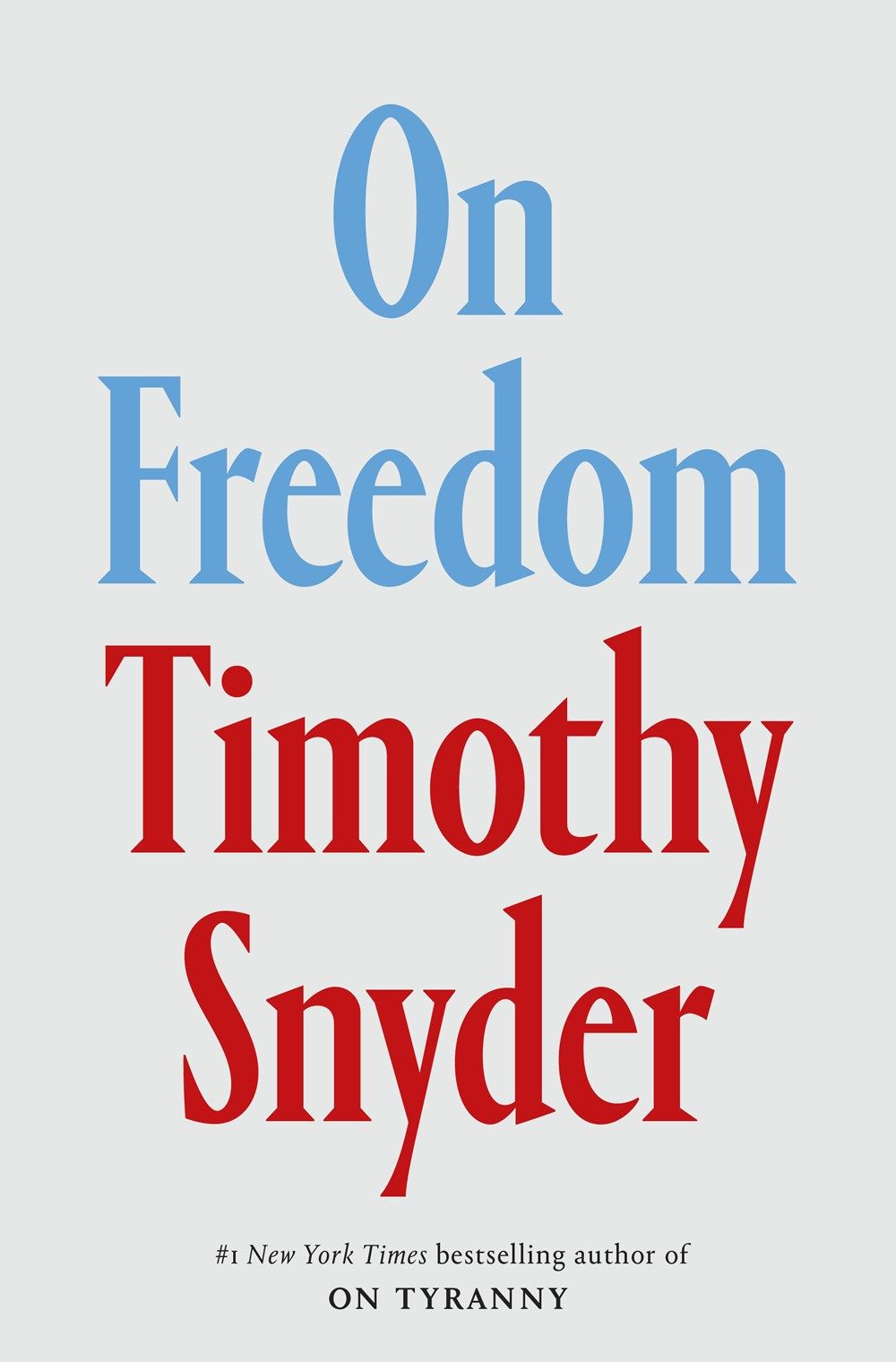
Productivity
Personal Development
Time Management
Philosophy
Essentialism Book Summary
Greg McKeown
Essentialism is a disciplined, systematic approach for determining where our highest point of contribution lies, then making execution of those things almost effortless. By applying the principles of "less but better" to every area of our lives, we can channel our time, energy and effort toward accomplishing the vital few things that really matter.
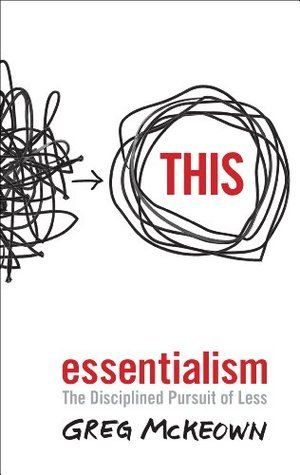
Productivity
Self-Help
Personal Development
Slow Productivity Book Summary
Cal Newport
In "Slow Productivity," Cal Newport argues that the key to producing meaningful knowledge work is rejecting busyness and distraction in favor of a more deliberate approach that prioritizes quality, focus, and a sustainable pace.
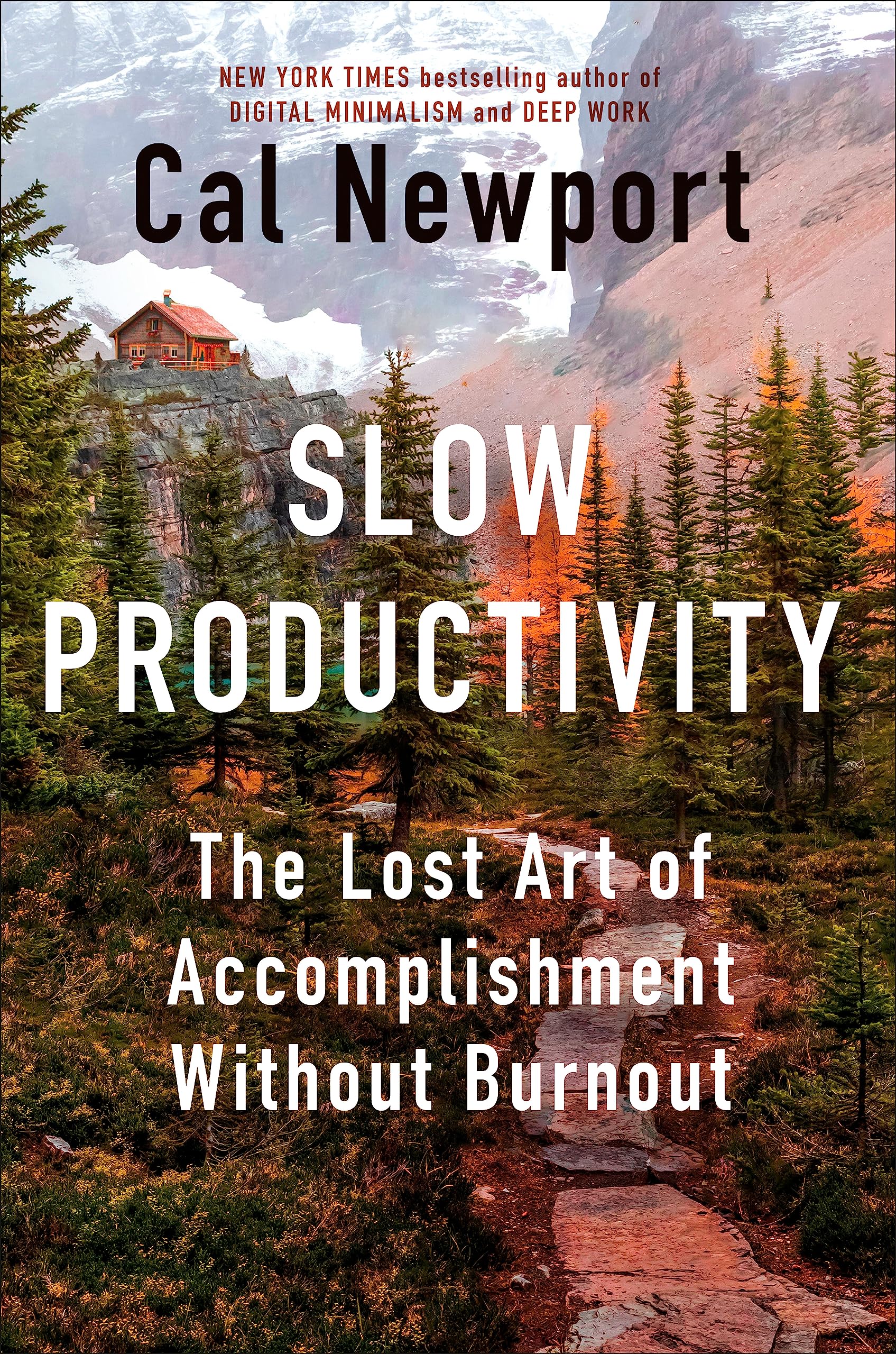
Philosophy
Science
Biology
The Selfish Gene Book Summary
Richard Dawkins
"The Selfish Gene" revolutionizes our understanding of evolution by arguing that genes, not individuals or species, are the fundamental units of natural selection, driving the behaviors and adaptations we observe in living organisms through their relentless pursuit of self-replication.
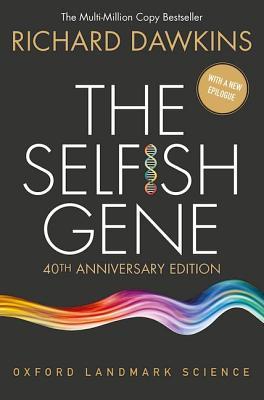
Philosophy
Personal Development
Leadership
Productivity
The Obstacle Is the Way Book Summary
Ryan Holiday
The Obstacle Is the Way presents a practical formula for overcoming life's challenges and achieving success by controlling perceptions, taking decisive action, and cultivating an indomitable will.
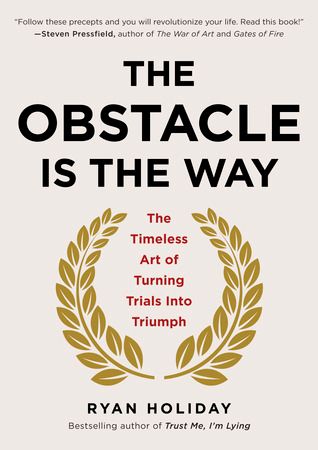
Mindfulness
Religion
Psychology
Science
Philosophy
Happiness
Why Buddhism Is True Book Summary
Robert Wright
Robert Wright explores how Buddhist teachings and meditation practices, particularly from the Vipassana tradition, align with findings from modern psychology and evolutionary theory to diagnose the human condition and provide a path to greater clarity, happiness, and moral progress.
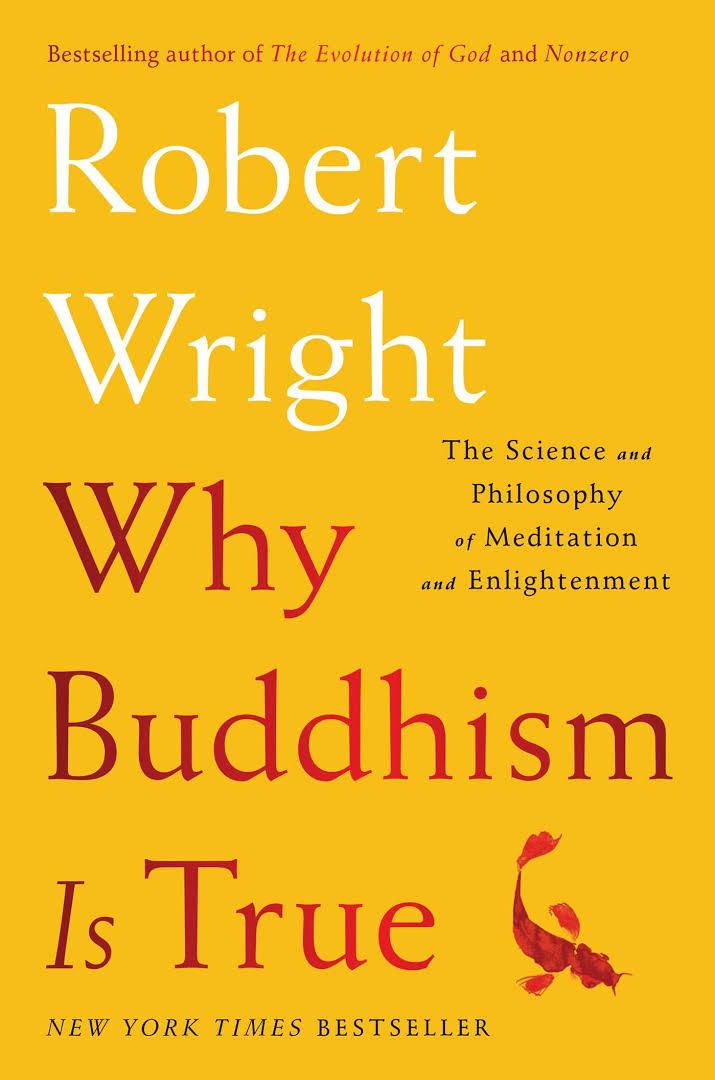
Happiness
Psychology
Philosophy
Personal Development
Meaning
The Happiness Hypothesis Book Summary
Jonathan Haidt
The Happiness Hypothesis is a thought-provoking exploration of ancient wisdom and modern science that reveals the true sources of human flourishing - love, work, virtue, and the harmony between our divided selves and our social world.
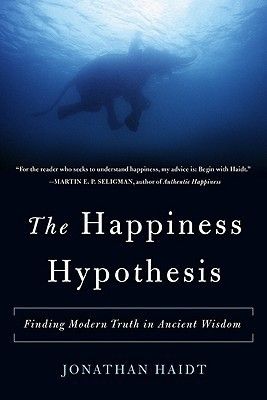
Philosophy
Personal Development
Four Thousand Weeks Book Summary
Oliver Burkeman
"Four Thousand Weeks" offers a radical perspective on time management, urging us to abandon the futile quest for control and embrace our finite existence. By accepting our limitations and making conscious choices, we can discover a more meaningful and fulfilling way to spend our brief time on this planet.
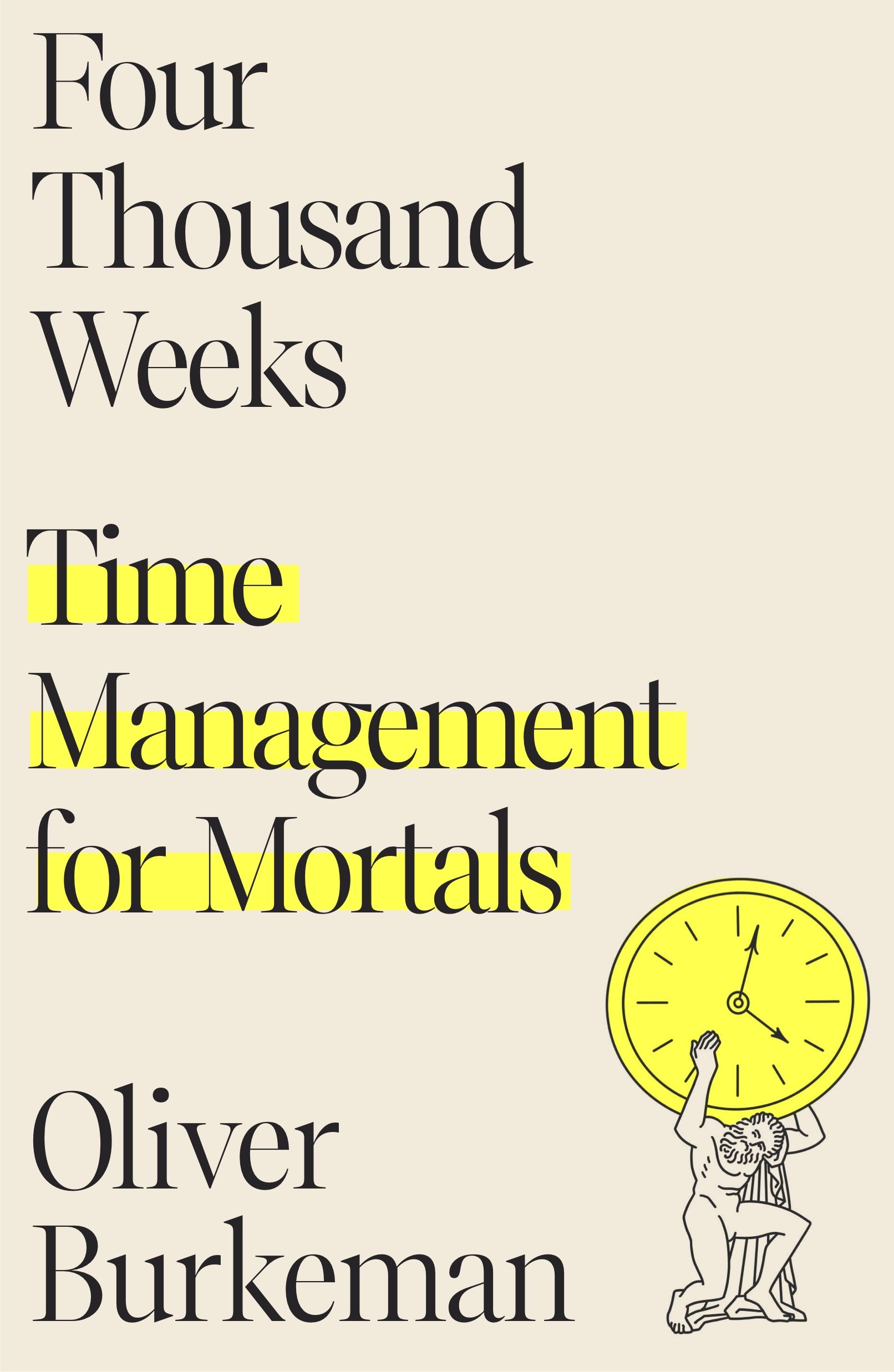
History
Politics
Philosophy
On Tyranny Book Summary
Timothy Snyder
In "On Tyranny," Timothy Snyder draws urgent lessons from the 20th century's bitter experience with tyranny to equip ordinary citizens today with the tools to recognize encroaching authoritarianism and fight back before it's too late.
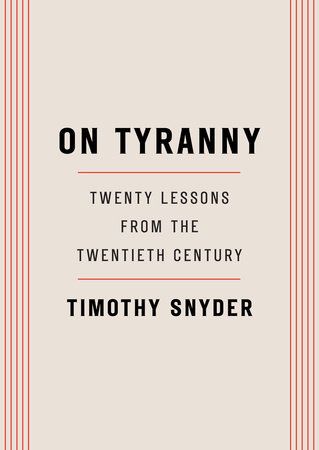
Psychology
Personal Development
Self-Help
Philosophy
The Subtle Art of Not Giving a F*ck Book Summary
Mark Manson
In "The Subtle Art of Not Giving a F*ck," Mark Manson argues that the key to a good life is not the pursuit of happiness, but rather the embrace of uncertainty, failure, and our own limitations - learning to care deeply about a few important things, and letting go of the rest.
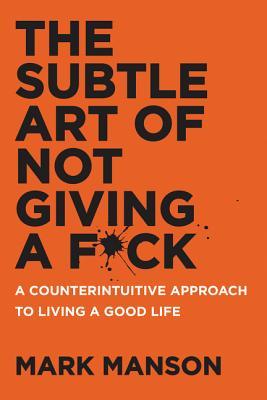
The Black Swan Book Summary
Nassim Nicholas Taleb
The Black Swan is about the extreme impact of rare and unpredictable outlier events, and how we tend to find simplistic explanations for them after the fact, making us blind to randomness and vulnerable to future Black Swans.
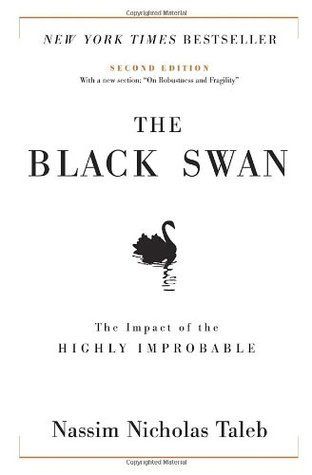
Personal Development
Philosophy
Everything is F*cked Book Summary
Mark Manson
In a world where everything seems fcked, Manson provides a provocative exploration of the human condition, offering a counterintuitive perspective on the nature of hope, the illusion of self-control, and the quest for meaning amongst uncertainty
